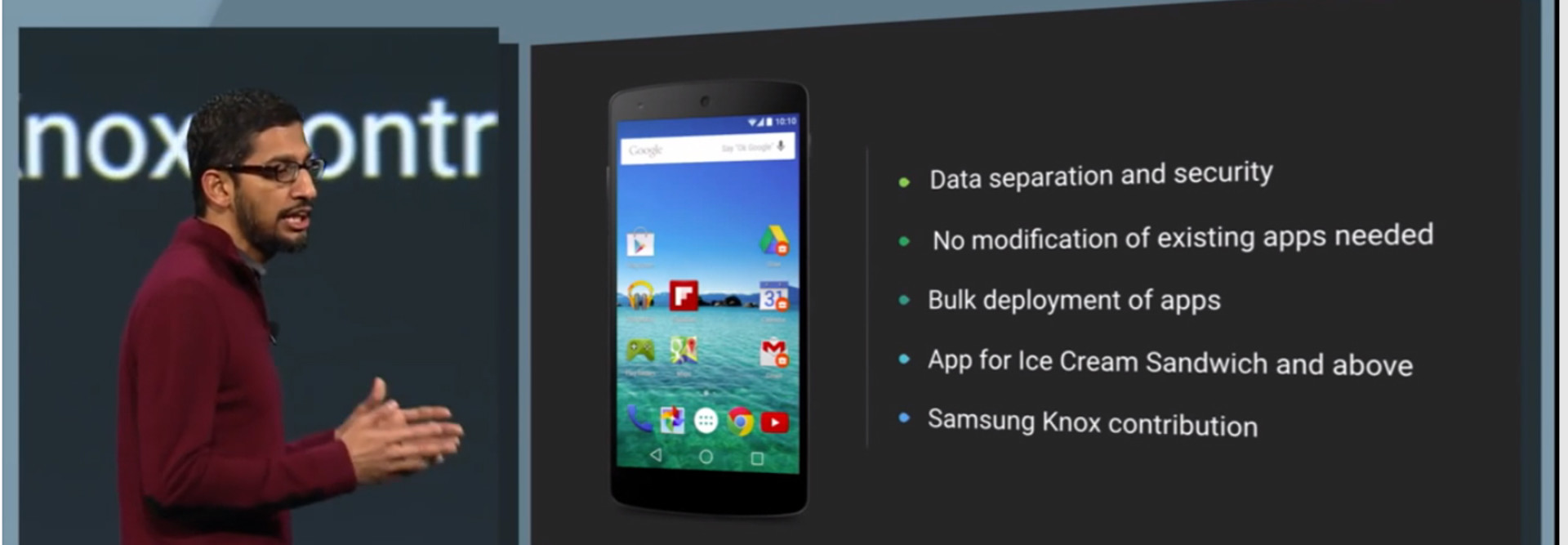Android Ecosystem Rallies Around Android for Work Initiative
As the most popular mobile operating system in the world, Google’s Android wields an enormous amount of influence in people’s personal and professional lives.
The latest data from the Kantar Worldpanel ComTech, as reported by BGR, finds that Android holds 62 percent of the mobile phone market share in the U.S. As the leading Android original equipment manufacturer (OEM), Samsung has taken a leadership role in making the mobile OS enterprise-friendly with its KNOX platform. The good news is that Samsung is actually going to be making the features of its KNOX suite available to the broader Android ecosystem with the release of Android for Work, reports Engadget.
Android for Work, a suite of native features and tools within the Android OS, will allow users to separate their business and professional work profiles, making it easy for workers to use one device for different parts of their lives. The company announced the initiative at the end of June during its annual developer conference, Google I/O.
Using Android for Work also will give IT much more robust monitoring and management capabilities when deploying a fleet of Android devices, reports CIO.
Android [for] Work gives IT new controls for app distribution within Google Play. For example, businesses can use Google Play to bulk distribute apps to everyone in a company, a specific group of users or to individuals. Google Play will also offer bulk purchasing and licensing options for enterprises. Apps sent to the work profile have an Android Work suitcase logo, so users can easily tell which apps are work apps. Once applications are deployed, IT can use a security policy to manually adjust in-app settings to remove or restrict certain functionality.
According to Android Central, some of the manufacturers onboard with the Android for Work initiative include Sony, LG, Motorola, and HTC. Workers with phones from those OEMs should expect to benefit from Android for Work soon.
This Android enterprise initiative is particularly compelling since the distributed Android ecosystem is rallying around the cause and leveraging the code and software development of one manufacturer (Samsung) for the other competitor OEMs. The “fragmented” ecosystem is usually seen as a disadvantage of the Android market, but it’s clear that it can also become an advantage in the right situations.









